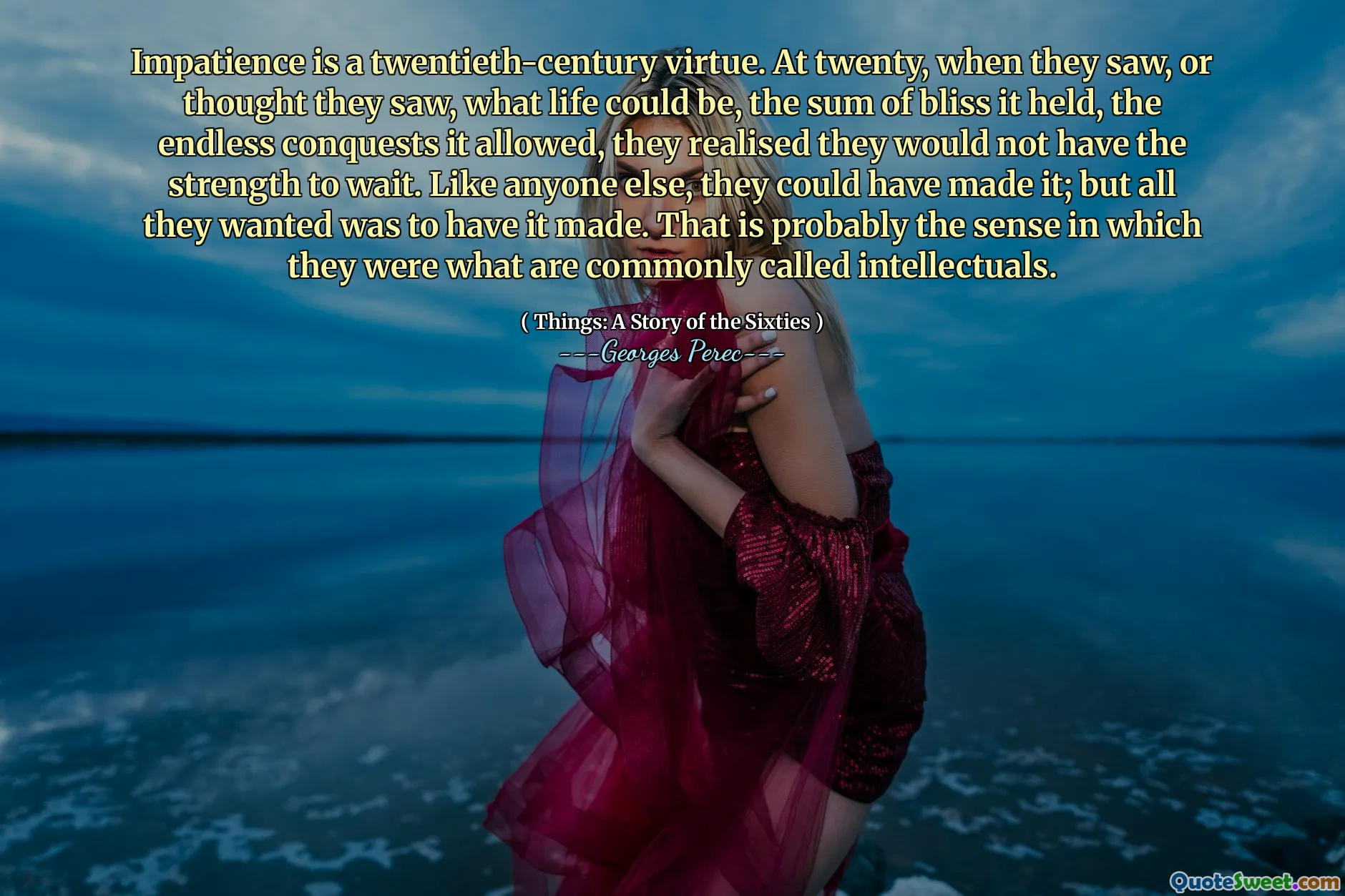
Impatience is a twentieth-century virtue. At twenty, when they saw, or thought they saw, what life could be, the sum of bliss it held, the endless conquests it allowed, they realised they would not have the strength to wait. Like anyone else, they could have made it; but all they wanted was to have it made. That is probably the sense in which they were what are commonly called intellectuals.
This quote offers a profound commentary on the cultural and psychological shifts experienced in the twentieth century, especially among young adults and the intellectual class. It highlights how impatience has transformed into a virtue in this era, fueled by rapid technological advancements, the immediate gratification culture, and the relentless pursuit of achievement. At a youthful age, these individuals perceived life as a limitless horizon of possibilities—bliss, conquest, fulfillment—yet the realization that they lack the stamina to wait for such pursuits suggests an existential tension. The portrayal of young, ambitious people as eager to 'have it made' immediately resonates with contemporary societal tendencies towards instant success, often fueled by social media and a culture of constantly needing validation and progress. This impatience, while often critique as a flaw, is positioned here as an admirable quality—an attribute of modern intellectuals driven by ambition and clarity of purpose. The quote also raises a broader philosophical question about whether patience and slow growth are ever truly valued in modern society, or if the desire for immediate results compromises depth and sincerity. It prompts us to reconsider how modern virtues are shaped by the times we live in and how youthfulness and ambition interact with the expectations of rapid achievement, potentially at the expense of persistence and reflection. Overall, the quote encapsulates a complex portrait of modernity's influence on ambition, patience, and the definition of intellectual pursuit.






